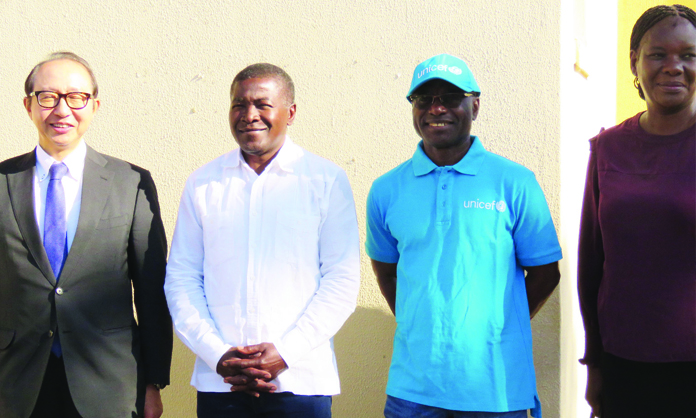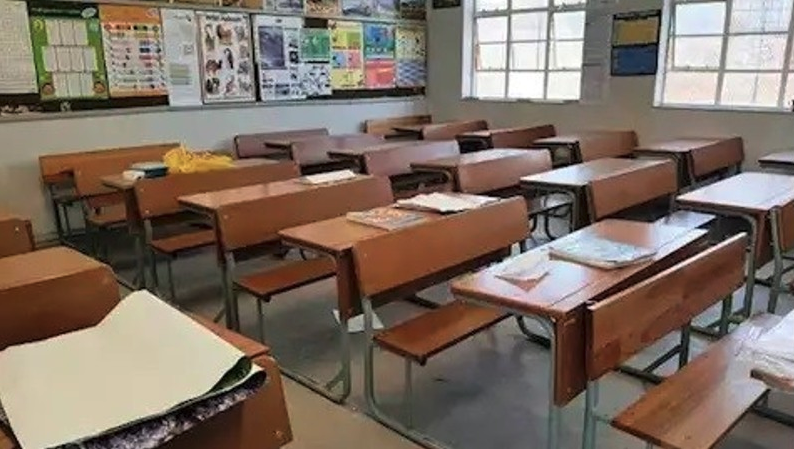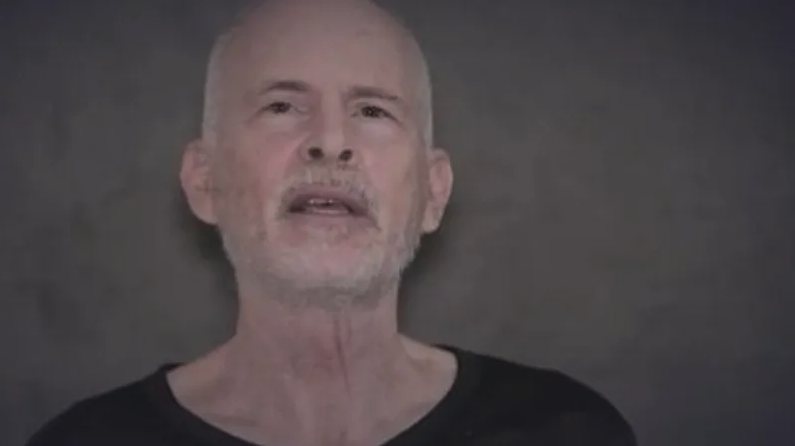Vice president Netumbo Nandi-Ndaitwah spent three days touring various green schemes in the Kavango regions last week.
This in an effort to demonstrate that the government is serious about reviving agriculture in the Kavango regions, Kavango East governor Bonifatius Wakudumo said last week.
A joint delegation of the Japanese ambassador to Namibia, Nishimaki Hisao, and United Nations Children’s Fund (Unicef) representative Samuel Ocran paid the governor a courtesy call at Rundu on Friday.
The delegation was scheduled to visit Rundu Intermediate Hospital after the Japanese government donated some equipment to it.
“The vice president arrived on Sunday and on Monday we visited the Uvhungu-vhungu, Mashare as well as Ndonga Linena green schemes.
On Tuesday she visited Shitemo and Shadikongoro green scheme and on Wednesday morning she visited the blueberry scheme,” Wakudumo said.
He said he was passionate about starting small units for small-scale farmers if he could get help from development partners.
“To me what is important is that the Okavango River has abundant water and there is very fertile land along its course, while the climate here is conducive to the production of the staple maize and wheat.
“From October to March you can produce maize and from April onwards you can grow wheat.
If say 1 000 families get a hectare each along the river, we are already talking about 1 000 hectares of potential production,” he said.
The governor said a pilot project can be started for about 50 households, in conjunction with the Ministry of Agriculture, Water and Land Reform’s mechanisation programme under which the ministry bought tractors and other farming equipment.
“It is a very good project, but are all these tractors and farming implements going to be used once a year during the rainy season only? And when the rain stops we park them, because we did not make provision for supporting small-scale farmers?” he asked.
Wakudumo said if ways can be found to draw water from the river and deliver it to each family within a hectare along the river’s course, a lot of idle land could be turned into productive land all-year round, producing maize, wheat and vegetables, utilising the tractors.
He said the average family needs at least four additional people to help them, thereby creating work.
“If water is provided through a pipeline, extension officers could come and train people on modern farming methods.
“And if small-scale farmers are capacitated with training, seeds and other inputs, they could be very productive and their produce could be for their own consumption and for sale – ensuring food security in the region,” he said.
The governor appealed to development partners to assist the region to put up this type of infrastructure, as a lack of finance is the biggest challenge the region faces.
Hishao said Japan has implemented a similar project in the Zambezi region, where it capacitated 6 100 farmers’ households by giving them garden tools, seeds, fruit trees and irrigation systems.
“At the same time we trained them on how to use the tools. I talked to some of the farmers and they are happy with the support as they are now successful, and they’re getting much more selling their produce,” he said.
Ocran assured the governor he would approach the United Nations Food and Agriculture Organisation for help.
He said Japan believes in sustainability.
Hishao said Japan has sent more than 153 qualified teachers to Namibia and trained 1 600 officials in various fields, including agriculture.
“We are also assisting in the rehabilitation of Walvis Bay, as well as the Walvis Bay-Ndola-Lubumbashi Development Corridor, also known as the Trans-Zambezi Highway, to make Namibia a hub of activity.
“The second pillar is being implemented with Unicef, where we funded nine cold-chain systems to store vaccines at health centres.
“Many people in this region have benefited from that donation,” he said.
– email: matthew@namibian.com.na
Stay informed with The Namibian – your source for credible journalism. Get in-depth reporting and opinions for
only N$85 a month. Invest in journalism, invest in democracy –
Subscribe Now!






